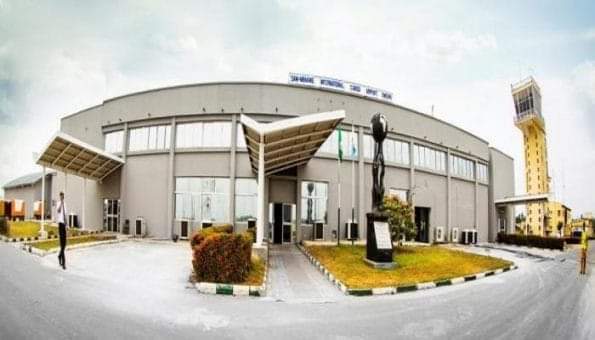The manager of Sam Mbakwe International Cargo Airport (SMICA), Owerri, Dr. Nkechi Ihekwaba, has called on investors, airline operators, and individuals to capitalize on the rapid growth of the airport. Highlighting its capacity, Dr. Ihekwaba noted that the airport’s main apron can accommodate four Boeing 737-800 series planes, while its extended apron can handle up to ten small-bodied aircraft simultaneously. Additionally, the airport is equipped with Category 7 Aerodrome Fire Fighting Services, enhancing its safety measures.
Speaking at the 2024 Aviation Business Summit and Expo in Lagos, Dr. Ihekwaba presented a paper titled “Investment Potential of the Airport,” where she shared that SMICA sees a monthly peak of around 62,000 passenger movements and about 39,000 during off-peak periods. As Nigeria’s first community-built airport, it has significantly benefited both Imo State and neighboring regions. The region is rich in natural resources, including solid, liquid, and gaseous minerals, as well as agricultural raw materials ideal for industrial processing.
The airport’s passenger growth potential is evident in the available data, Dr. Ihekwaba added. The terminal building, with a peak capacity of 1,200, often handles up to 2,000 passengers during busy periods, with the support of a General Aviation Terminal. Since taking charge, Dr. Ihekwaba has ensured that SMICA’s maintenance culture has reached a 98% efficiency rate.
Currently, four airlines—Air Peace, United Nigeria Airlines, Green Africa Airways, and Aero Contractors—operate at the airport, covering routes between Owerri, Abuja, and Lagos on a daily basis. Though Dana Airways is temporarily suspended, SMICA remains active with over 37 aircraft movements, particularly during political events.
Dr. Ihekwaba also noted that in 2015, then-President Goodluck Jonathan approved the airport’s upgrade to an international cargo facility, in line with Nigerian Civil Aviation Regulations. This led to the construction of a cargo terminal with warehousing capabilities.
Maintaining critical airport facilities is a top priority for Dr. Ihekwaba. She has fostered strong relationships with security agencies, local community leaders, and the state government, ensuring a safe and secure environment for airport operations. Additionally, her focus on teamwork, communication, and collaboration with airlines and stakeholders has helped the airport achieve zero incidents or accidents during her tenure.
Dr. Ihekwaba is also committed to reviving abandoned projects at the airport. She emphasized that the airfield lighting installation, sponsored by the Imo State government, has been completed and inspected by the Nigerian Civil Aviation Authority (NCAA). The airport now awaits NCAA approval to make the system operational.
Strategically located in Imo State, SMICA’s new cargo terminal will enhance the flow of goods and services to over 50 million people in surrounding markets within Nigeria’s South-South and South-East regions. Since its establishment, the airport has grown to become one of the busiest domestic airports in Nigeria, built through the communal efforts of the people of the former Imo State, which now comprises Imo, Abia, and Ebonyi states.
Recently, SMICA was recognized as the winner of the “All Nigeria Airport Manager Business Forum Contest” at the 2024 Airport Business Summit and Expo in Lagos, reflecting its ongoing success and growth.




